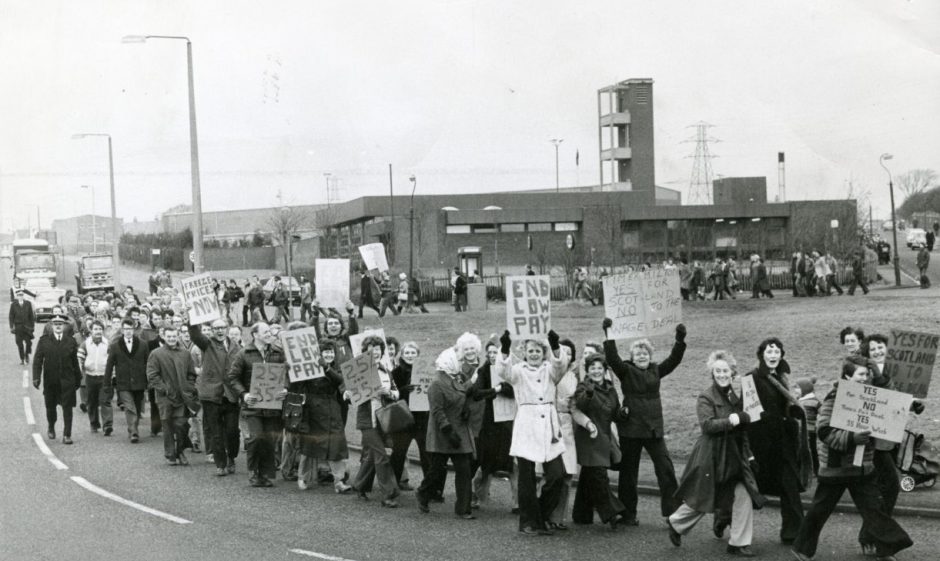
Dundee workers have never been afraid to stick up for a cause.
The theme of this week’s pictorial trip down memory lane is protests, strikes and demonstrations in Dundee which go back to the 1940s.
The archives team at DC Thomson have gathered a selection of images featuring everything from Dundee housewives to striking bus drivers and Timex.
Grab yourself a cuppa and have another browse back through the ages courtesy of The Dundonian, which appears in the Evening Telegraph every Wednesday.
Some of these photographs have not been seen for years.
Do these awaken any memories for you?
Washing dirty linen in public
Members of Dundee Housewives’ Association demonstrated in Albert Square in June 1948 against Harold Wilson’s refusal to receive their petition.
Mr Wilson, president of the Board of Trade, declined to meet the deputation which gathered 32,000 signatures demanding ration coupons for household linen.
The future prime minister was in Dundee to meet jute representatives.
Shipyard strike
A strike meeting in City Square in March 1957.
About 1,300 of the 1,700 workers employed by Caledon Shipyard in Dundee were among those taking part in a national strike calling for a 10% pay rise.
The strike was described as “the most serious crisis since 1926”.
Let the hammers ring
A mass demonstration of 5,000 workers gathered in City Square in April 1958 and protested against the rising level of unemployment in Dundee.
The protest march was organised by the Save the Foundries campaign following the closure of the Wallace Foundry with the loss of 180 jobs.
Wallace was one of three Dundee works – the others were Townshend Machine Shop and Bellfield Works – being closed by Urquhart, Lindsay and Robertson.
Nuclear war protest
Fear of nuclear war brought protest to the City Square in May 1963.
CND demonstrators were in attendance with placards, leaflets and megaphones at a civil defence exercise which involved 500 vehicles and 1,500 personnel.
The civil defence drill was simulating the response to a nuclear attack on Dundee.
Bus drivers on strike
Dundee Corporation busmen began strike action on August 13 1968.
The strike lasted 28 days and started after the government’s decision to reject a productivity bonus arrangement following new timetable schedules.
The walk-out cost the council £50,000 and taxi drivers did a roaring trade.
Dundee decides to sell its buses
There were angry scenes in 1969 against Dundee Corporation’s decision to open negotiations with the Scottish Bus Group for the sale of the city’s fleet.
The department was losing £180,000 a year.
Dundee Corporation agreed by 18 votes to 17 to sell its buses.
A public protest meeting was held at the Marryat Hall.
A resolution was carried almost unanimously that no move would be made by Dundee Corporation to sell the buses until after the council elections in May.
A plan for retaining the city’s bus undertaking under municipal control was eventually put forward following talks with the Transport and General Workers’ Union.
No post in Dundee
Postal services were suspended in January 1971.
This was the first national postal strike in Great Britain and continued until March.
Our picture shows a Dundee post box covered up with a warning notice.
Dundee Widows
He who pays the piper calls the tune.
Dundee widows at Taybridge Station before leaving for their rally in London in pursuit of a fairer financial deal in May 1977.
Can you spot anyone you know in this photo?
Winter of discontent
Pickets outside Dundee Sheriff Court in January 1979.
Between October 1978 and February 1979 Britain experienced a wave of strikes on a scale that hadn’t been seen since the General Strike of 1926.
The Civil and Public Services Association (CPSA) voted for selective strikes in key installations, a ban on overtime and other action over pay.
SPUC rally
Police were brought in to keep separate factions apart in the City Square in April 1979.
Society for the Protection of the Unborn Child (SPUC) marchers were met by a counter demonstration on their way to a rally in the Caird Hall.
They were campaigning against abortion.
Timex occupation in 1983
Timex workers barricaded themselves in the Dundee plant for six weeks to oppose 1,900 redundancies which were announced in 1983.
In the course of the six-week occupation it became clear that watch-making could not be preserved and 300 further redundancies were announced on May 6.
Those involved shifted their goal to securing improved exit terms and on May 18 the workers agreed to accept an agreement and go back to work.
But the sun was setting on Timex.
The Milton of Craigie plant was eventually closed, sold off and bulldozed in 1988.
Dunsinane was closed and torn down in 1991.
An order from IBM was then cut back in 1992 and Timex management asked for 110 people to be laid off on Christmas Eve.
The unions tried to negotiate but agreement wasn’t reached and in January 1993, 343 hourly-paid workers, many with decades of service, went on strike.
Timex’s time halted in Dundee on August 29 1993.
It is the final image in our gallery of protests from days gone by in Dundee.
Did our pictorial trip back in time jog any memories for you?
Let us know.
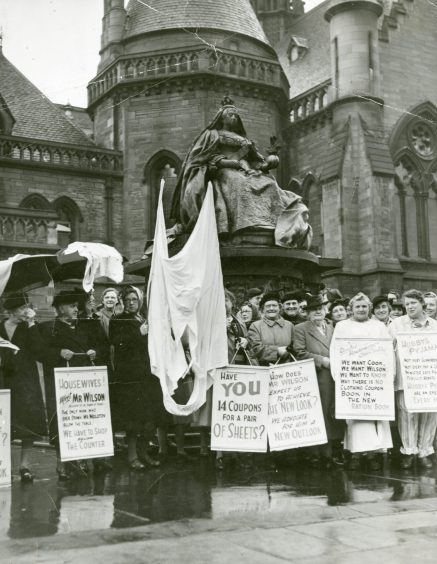
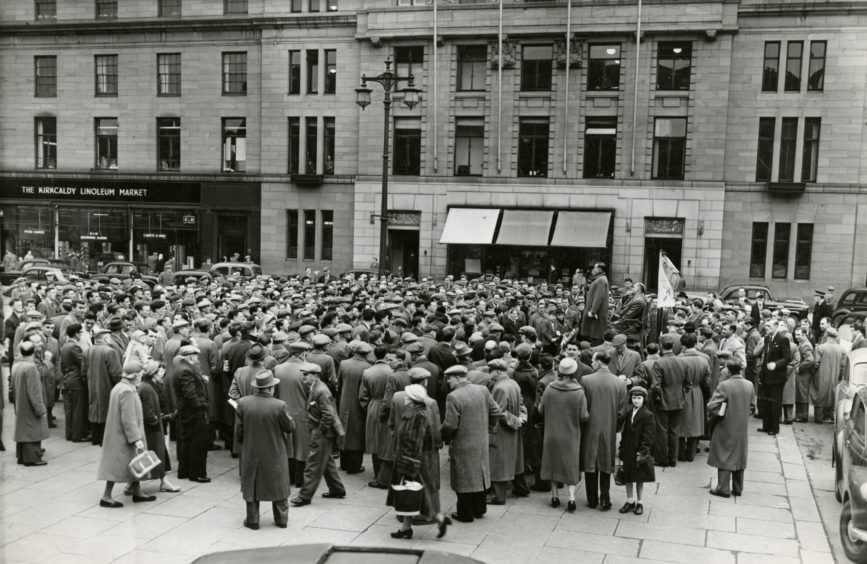
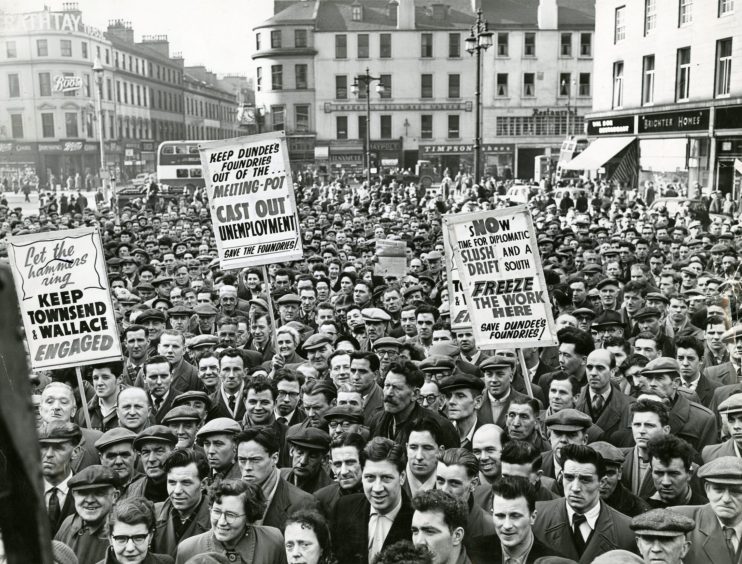
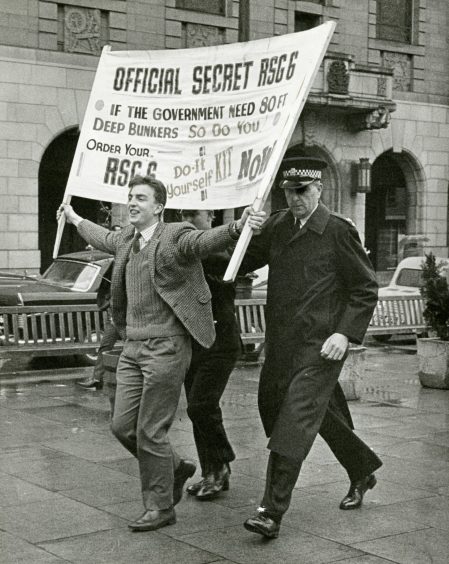
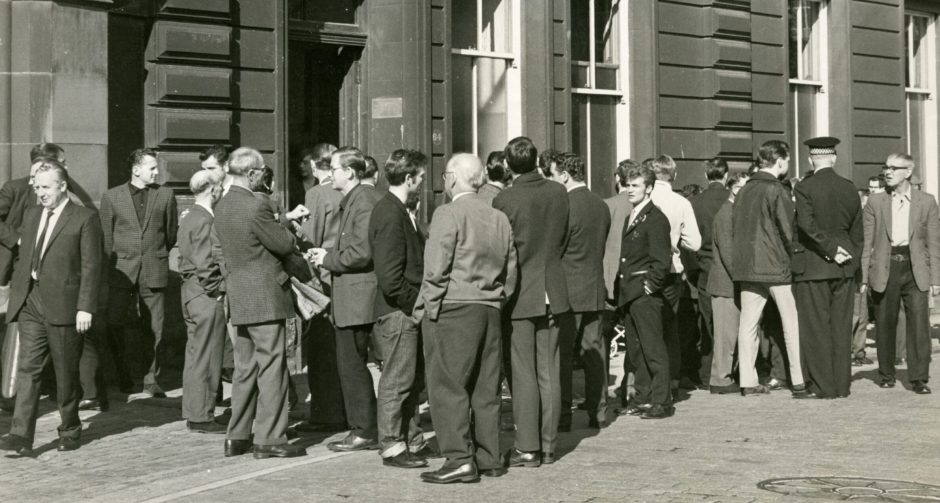
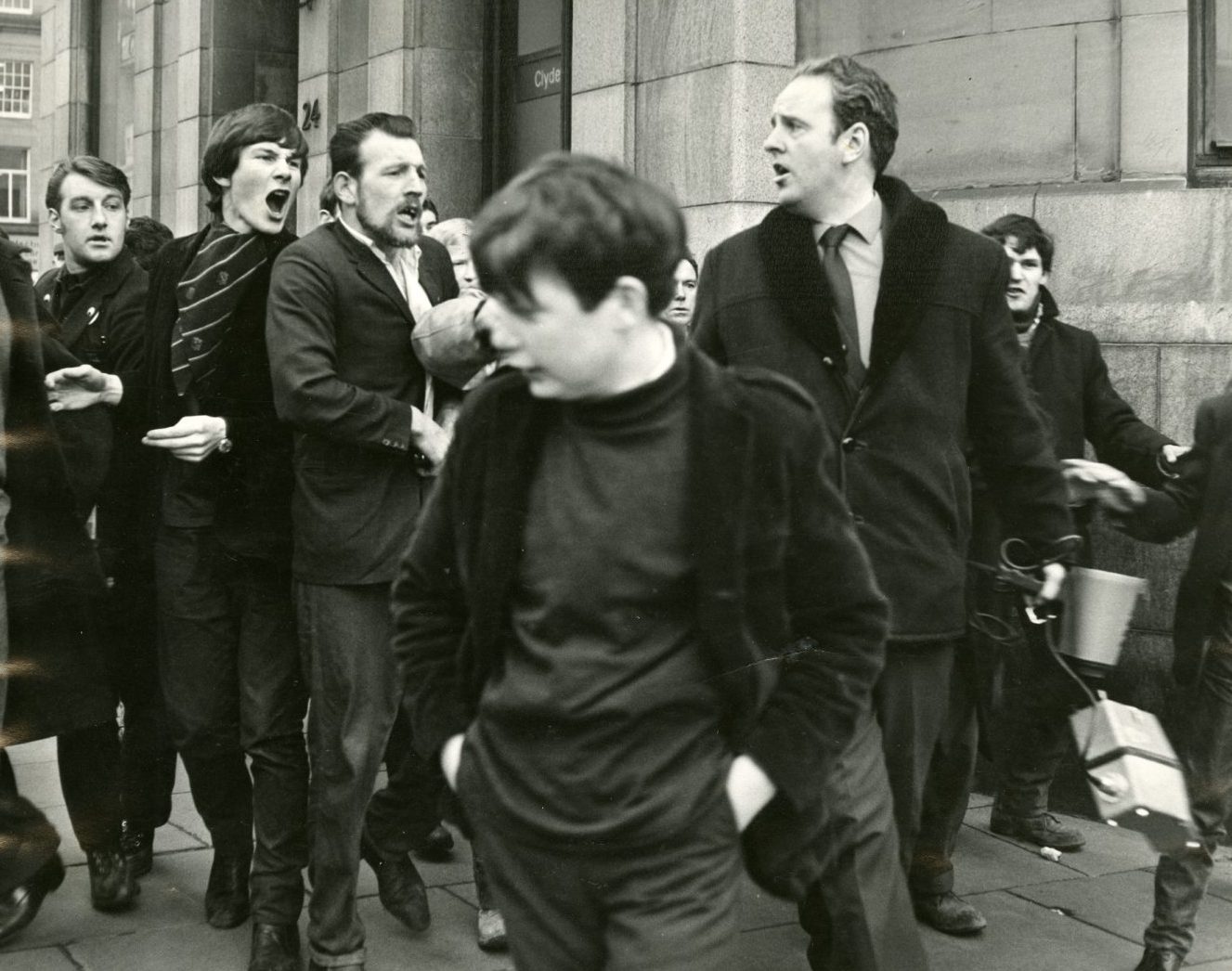
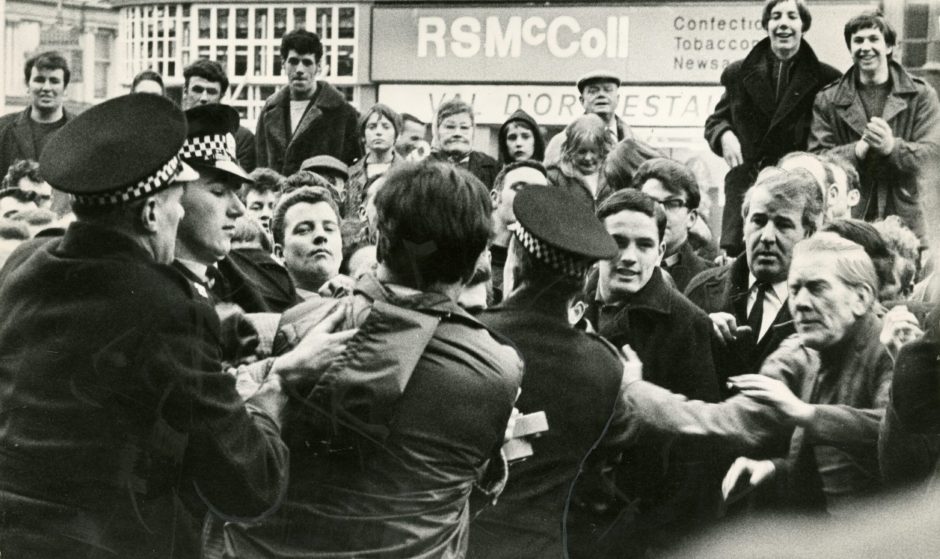
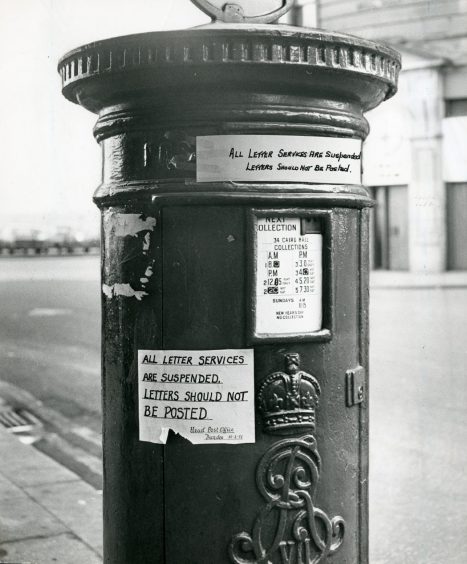
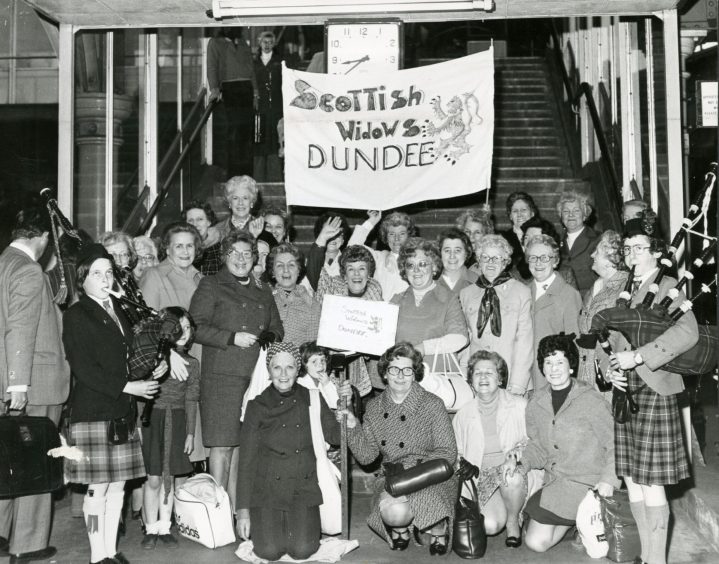
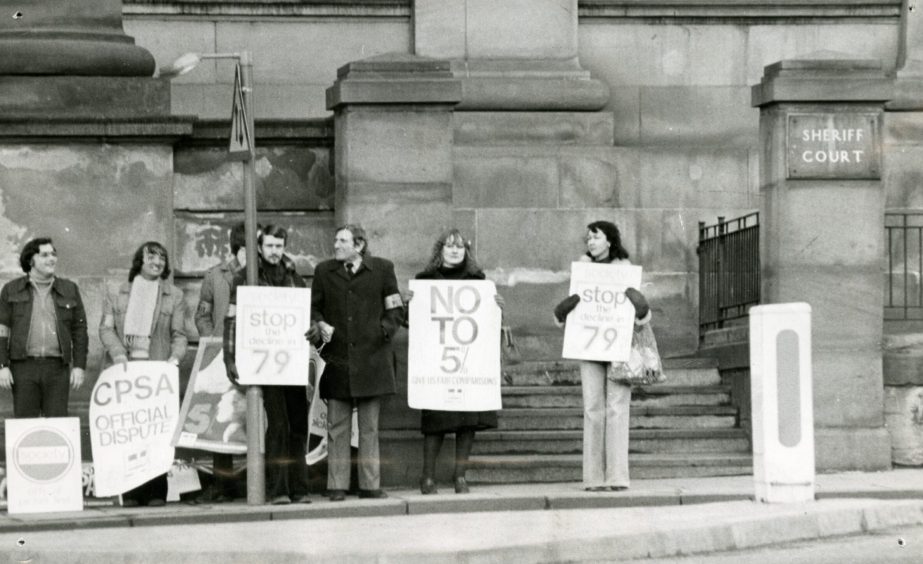
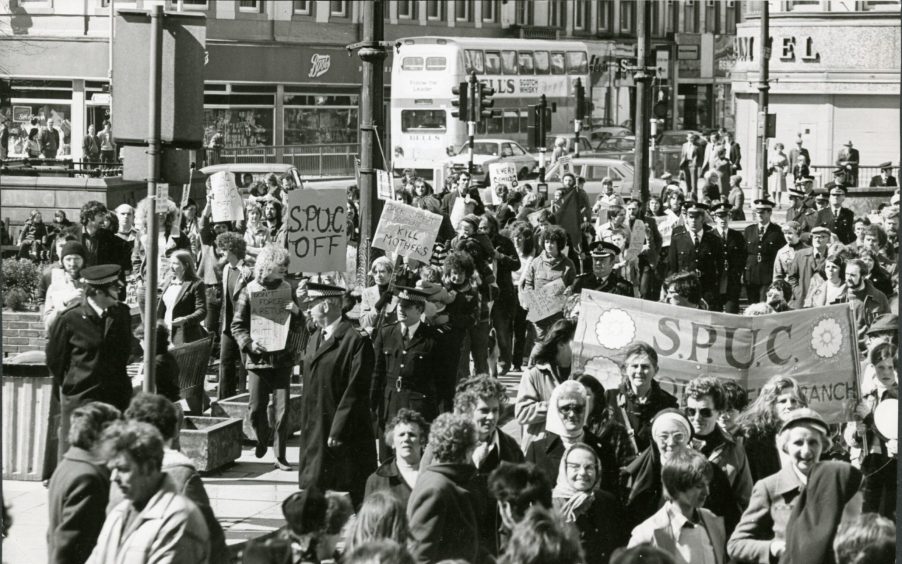
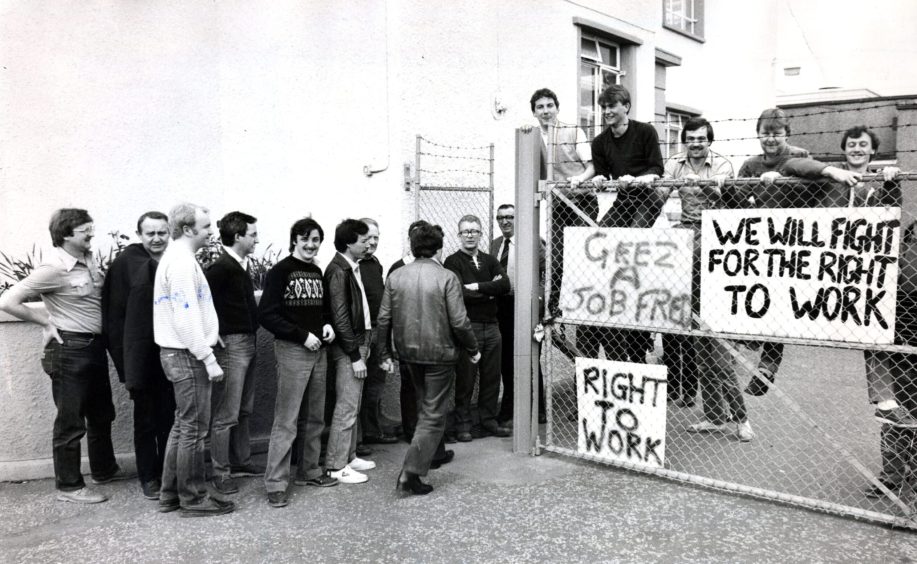
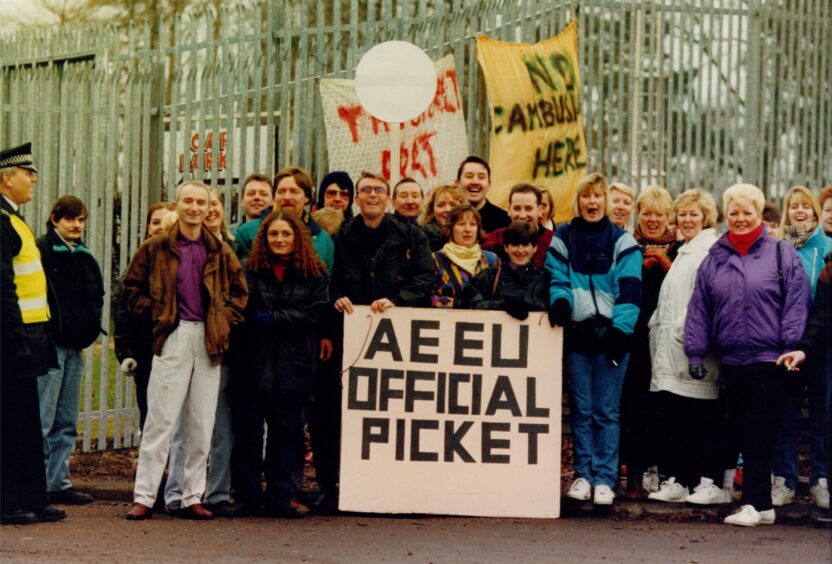
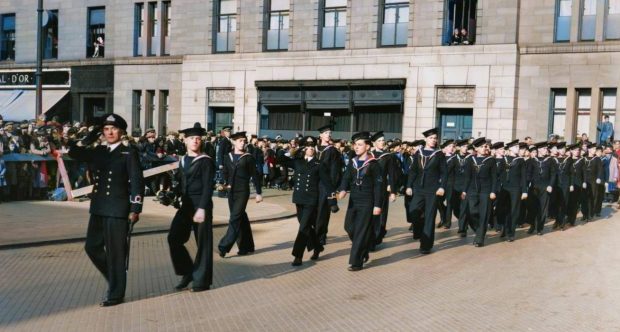

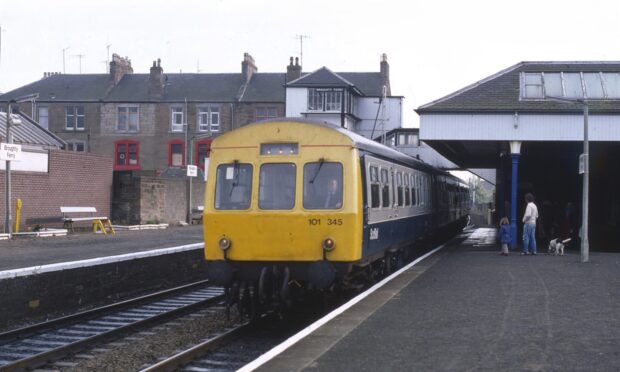
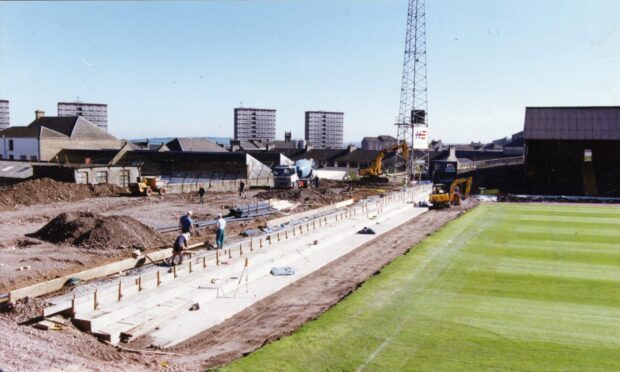
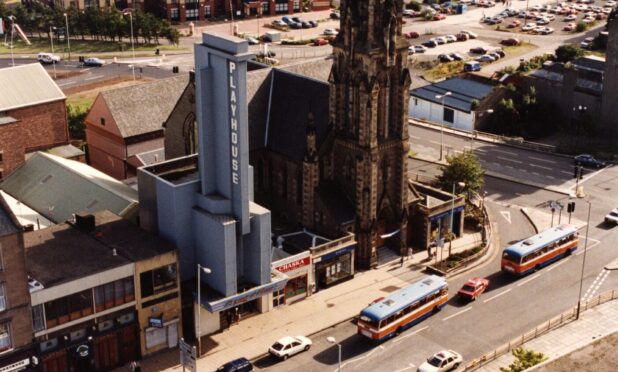
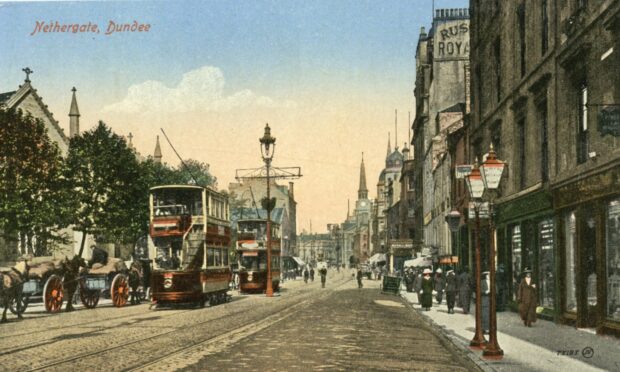




Conversation